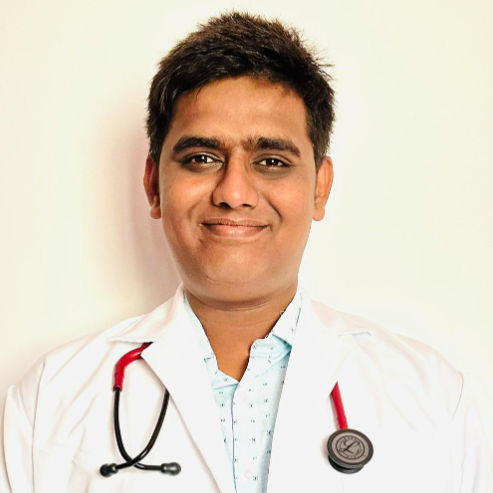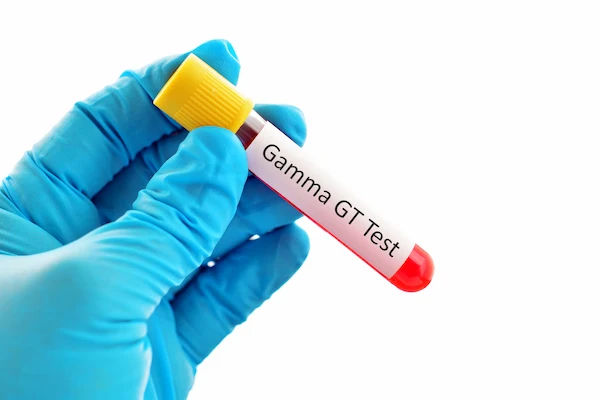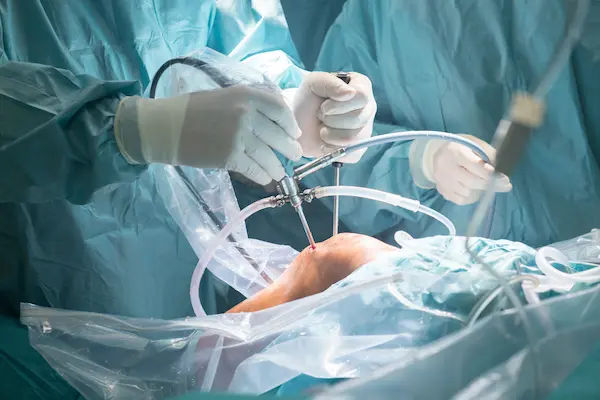Acromegaly: Overview of Symptoms and Treatment
Learn about acromegaly, a rare hormonal disorder caused by excess growth hormone. Understand its symptoms, causes, diagnosis, and treatment options to manage and prevent complications.


Acromegaly is a rare hormonal disorder that occurs when the body produces too much growth hormone, usually due to a non-cancerous tumor in the pituitary gland. This condition develops slowly over time, often leading to noticeable changes in physical appearance and various health complications. While acromegaly is uncommon, early diagnosis and treatment can help manage symptoms and prevent long-term complications.
In this article, we’ll explore the symptoms, causes, and treatment options for acromegaly in simple terms, along with practical tips for managing the condition.
What is Acromegaly?
Acromegaly happens when the pituitary gland, a small gland at the base of the brain, produces excessive growth hormone (GH). This usually occurs due to a benign (non-cancerous) tumour called a pituitary adenoma. Over time, high GH levels cause bones and tissues to grow abnormally, leading to changes in facial features, hands, feet, and other body parts.
If this condition occurs in children before their bones stop growing, it leads to gigantism, where they grow excessively tall. However, in adults, the bones can’t lengthen further, so the condition causes thickening of bones and soft tissues, known as acromegaly.
Common Symptoms of Acromegaly
Since acromegaly develops gradually, symptoms may go unnoticed for years. Some key signs include:
Physical Changes:
- Enlarged hands and feet (rings or shoes may no longer fit)
- Thickened, coarse facial features (broad nose, protruding jaw, enlarged lips)
- Increased spacing between teeth
- Thickened skin and oily or sweaty skin
- Deepening of the voice due to enlarged vocal cords
Other Symptoms:
- Joint pain and stiffness
- Headaches
- Fatigue and weakness
- Vision problems (if the tumour presses on the optic nerves)
- Sleep apnea (breathing pauses during sleep)
- High blood pressure and heart problems
- Increased risk of diabetes due to insulin resistance
If you notice these changes in yourself or a loved one, it’s important to consult a doctor for evaluation.
Consult an Endocrinologist for the best advice
What Causes Acromegaly?
The primary cause of acromegaly is a pituitary adenoma, a non-cancerous tumour that secretes excess growth hormone. In rare cases, tumours in other organs (like the pancreas or lungs) may also produce GH or growth hormone-releasing hormone (GHRH), leading to similar symptoms.
Risk Factors:
- Age: Most commonly diagnosed in middle-aged adults (30-50 years)
- Family history (rarely linked to genetic conditions like MEN-1 syndrome)
How is Acromegaly Diagnosed?
Since symptoms develop slowly, diagnosis often happens late. Doctors may use:
1. Blood Tests:
- IGF-1 Test: Measures insulin-like growth factor 1, which stays elevated in acromegaly.
- Oral Glucose Tolerance Test (OGTT): Checks if GH levels remain high after drinking glucose (normally, GH should drop).
2. Imaging Tests:
- MRI Scan: Helps detect pituitary tumors.
- CT Scan: Used if MRI isn’t available.
Get Your Health Assessed
Early diagnosis is crucial to prevent complications like heart disease, diabetes, and arthritis.
Treatment Options for Acromegaly
The goal of treatment is to reduce GH levels, shrink the tumour, and relieve symptoms. Options include:
1. Surgery (Transsphenoidal Surgery)
- The most common treatment, where surgeons remove the tumour through the nose.
- Successful in many cases, but some patients may need additional therapy.
2. Medications
- Somatostatin Analogues (Octreotide, Lanreotide): Reduce GH production.
- Dopamine Agonists (Cabergoline): Help lower GH in some cases.
- GH Receptor Antagonists (Pegvisomant): Block GH effects on tissues.
3. Radiation Therapy
- Used if surgery and medications don’t work.
- Takes time to show effects (months to years).
Lifestyle and Self-Care Tips
While medical treatment is essential, lifestyle changes can help manage symptoms:
- Healthy Diet: Focus on low-sugar, high-fibre foods to control blood sugar.
- Regular Exercise: Helps with joint pain and weight management.
- Sleep Apnea Management: Use a CPAP machine if needed.
- Regular Check-ups: Monitor blood pressure, heart health, and diabetes risk.
When to See a Doctor?
If you notice gradual changes in your facial features, hands, or feet, or experience persistent headaches, joint pain, or fatigue, consult an endocrinologist. Early diagnosis improves treatment outcomes.
Need expert advice? You can book a consultation with an endocrinologist on Apollo 24|7 for personalised care.
Final Thoughts
Acromegaly is a manageable condition with proper treatment. If you suspect symptoms, don’t ignore them; early intervention can prevent complications and improve quality of life. Would you like to schedule a test or consultation? Visit Apollo 24|7 today for expert care.
Consult an Endocrinologist for the best advice
Consult an Endocrinologist for the best advice
Dr Sumanth R
General Physician
2 Years • MBBS
Bengaluru
PRESTIGE SHANTHINIKETAN - SOCIETY CLINIC, Bengaluru

Dr. Nilotpal Mitra
General Physician/ Internal Medicine Specialist
20 Years • MBBS, PGDGM ( Geriatric Medicine), ACMDC (an Advance course in Diabetes and cardiovascular diseases from PHFI and WHF )
Kolkata
MCR SUPER SPECIALITY POLY CLINIC & PATHOLOGY, Kolkata

Dr. Anand Ravi
General Physician
2 Years • MBBS
Bengaluru
PRESTIGE SHANTHINIKETAN - SOCIETY CLINIC, Bengaluru

Dr. Sushith C
General Physician
2 Years • MBBS
Bengaluru
PRESTIGE SHANTHINIKETAN - SOCIETY CLINIC, Bengaluru
Dr. Mohammad Sharfraz Ahamed
Endocrinologist
6 Years • MD GENERAL MEDICINE(KURNOOL MEDICAL COLLEGE), DM Endocrinology(SKIMS, Deemed university)
Nellore
Apollo Speciality Hospitals, Nellore
Consult an Endocrinologist for the best advice
Dr Sumanth R
General Physician
2 Years • MBBS
Bengaluru
PRESTIGE SHANTHINIKETAN - SOCIETY CLINIC, Bengaluru

Dr. Nilotpal Mitra
General Physician/ Internal Medicine Specialist
20 Years • MBBS, PGDGM ( Geriatric Medicine), ACMDC (an Advance course in Diabetes and cardiovascular diseases from PHFI and WHF )
Kolkata
MCR SUPER SPECIALITY POLY CLINIC & PATHOLOGY, Kolkata

Dr. Anand Ravi
General Physician
2 Years • MBBS
Bengaluru
PRESTIGE SHANTHINIKETAN - SOCIETY CLINIC, Bengaluru

Dr. Sushith C
General Physician
2 Years • MBBS
Bengaluru
PRESTIGE SHANTHINIKETAN - SOCIETY CLINIC, Bengaluru
Dr. Mohammad Sharfraz Ahamed
Endocrinologist
6 Years • MD GENERAL MEDICINE(KURNOOL MEDICAL COLLEGE), DM Endocrinology(SKIMS, Deemed university)
Nellore
Apollo Speciality Hospitals, Nellore





